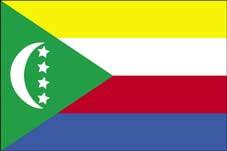Heat and Drought Tolerant Varieties: Mitigating Climate Change Effects through Maize Breeding

Climate change has emerged as a serious variable in crop production in the SADC region and across the globe. Reports indicate that for every one-degree Celsius increase in temperature, there is a corresponding five percent decrease in crop productivity.
The Centre for Coordination of Agricultural Research and Development for Southern Africa (CCARDESA) through the Agricultural Productivity Programme for Southern Africa (APPSA) supported the development of maize varieties that can adapt to climate change as a way of improving food security in the region spearheaded by Malawi, Mozambique and Zambia.
The trials which were led by Dr. Kesbell Kaonga (Malawi) in partnership with scientists from Mozambique and Zambia, were conducted between 2013 and 2020. The aim of this research was to develop hybrid varieties tolerant to heat and drought by using double haploid donor inbred lines.
According to Dr. Kaonga, the economic losses as a result of climate-related disasters are significant. “Malawi for instance, loses 1.7% of its Gross Domestic Product (GDP) on average every year due to the combined effects of droughts and floods”, said Dr. Kaonga.
Note that, maize remains crucial for food security in Southern Africa, accounting for an average of 36% of all caloric intake in the region, and heat and drought seem to be critical in determining the levels of production and productivity in the region.
Indeed, for FAO, severe droughts account for half of the world’s food emergencies annually. In 2003, the World Food Programme spent $565 million in response to drought in Sub-Saharan Africa and approximately 20 million metric tons is lost each year due to drought.
“When we first started our research journey we wanted to select at least 9 hybrids as potential candidates for release in the participating countries as follows: 3 drought-tolerant varieties, 3 heat-tolerant varieties and 3 that combine heat and drought tolerance”, added Dr. Kaonga.
Dr. Kaonga also shared that the donor lines for heat and drought tolerance came from CIMMYT and were crossed to Malawi inbred lines.
In the effort to develop hybrid varieties that are tolerant to heat and drought, donor lines were evaluated in Malawi, Mozambique, and Zambia under managed stresses. Additionally, the drought trials were evaluated for two seasons by withdrawing irrigation at the stage to coincide with the hottest period of the dry season.
In the case of developing double haploid inbred lines that are tolerant to heat and drought, the source populations were generated using donor lines and locally adapted ones.
“After the exercise, we identified 8 entries with high yields across the countries, from which 5 were the most stable. All the identified hybrids were tolerant to common maize diseases”, ended Dr. Kaonga.

























































